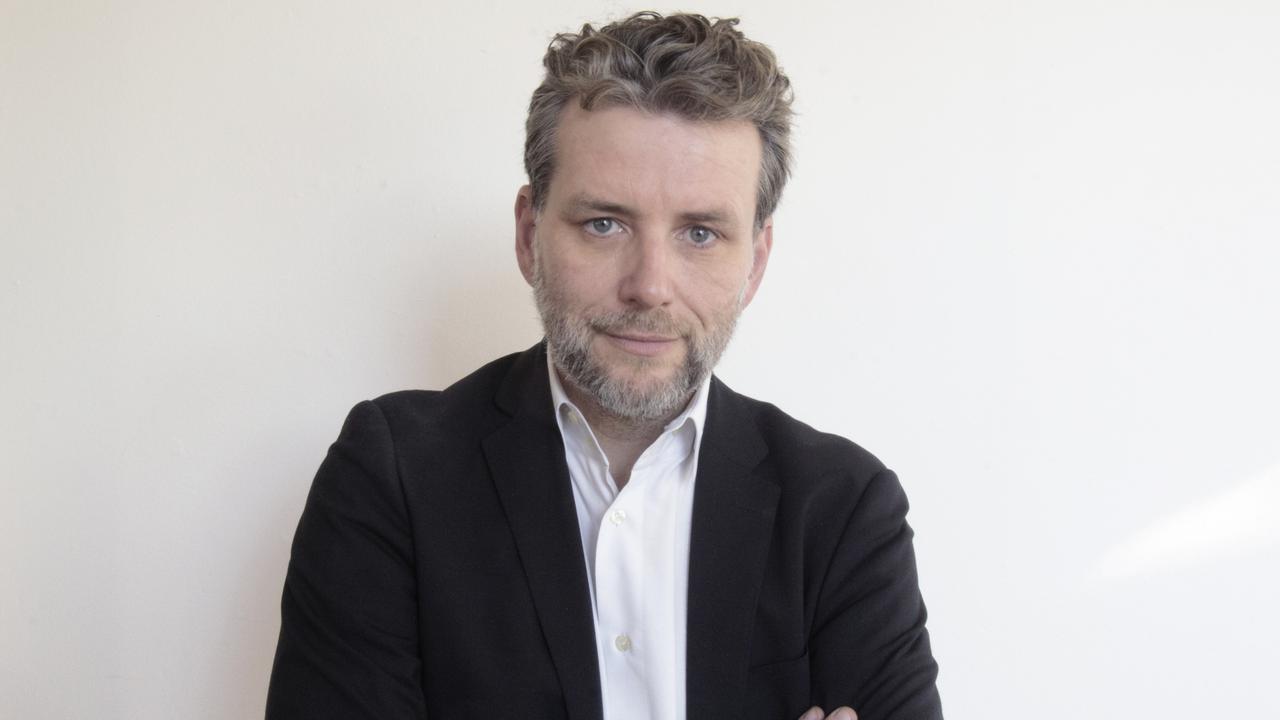It’s an even longer way to the top for Adelaide’s struggling musos
If you think Adelaide’s once legendary band scene is dead, spare a thought for the musos scraping by to keep it alive. So what happened? Nathan Davies set out to discover why the music died.

Arts
Don't miss out on the headlines from Arts. Followed categories will be added to My News.
- John the Beast: Tragic story of Adelaide’s metal giant
- What Spotify’s stats reveal about Adelaide’s suburbs
- Glenn Shorrock at his family’s Elizabeth East house
The late Bon Scott probably said it best in the AC/DC classic It’s A Long Way To The Top (If You Wanna Rock ’n’ Roll); “Gettin’ had, gettin’ took, I tell you folks it’s harder than it looks”.
Speak to the experts in Adelaide’s music scene, however, and they’ll tell you things haven’t got any better since that song was released in 1975.
In fact, they’ve got significantly worse with only a tiny handful of our original musos managing to eke out a living from playing live.
And while they all have different theories on why things are so tough in our corner pubs and band rooms, they all agree on one thing: it’s never going to get any better unless the punters start valuing live music again and paying for tickets.
Max McHenry has been playing live for the past 12 years, most recently as the frontman for country rock outfit Max Savage and the False Idols.
McHenry says making a full-time living from playing original music in 2018 was “almost impossible”.
“There are a few people that scrape by,” he says, “but 30 years ago you could pay a mortgage and send your kids to university.”
McHenry says the live music industry, like many other industries, has suffered from technological disruption and that there needed to be a rethinking of what a career in music looked like.
“When I started out there was a steady progression,” he says.
“You started at open mike nights, then started booking your own gigs, toured with your band and maybe did an overseas tour.
“There was a structure. If you were good and if you were committed you had a chance for success. That’s changed.”
The singer-songwriter says there’s no point in dwelling on how things used to be.
“I applaud any government efforts to help the live music scene, but the fundamental issue is that people are unwilling to pay for music,” McHenry says.
“For today’s generation music is in abundance and it’s free.
“Things are changing so quickly and governments and councils seem unwilling to talk about creating an environment where new forms of music can flourish.
“The tendency is to try to preserve things from the past, but the landscape is changing.
“There are a lot of venues in Adelaide that are sub-par and the government needs to create environments where new venues can thrive.
“This might involve soundproofing surrounding apartment buildings or making sure venues aren’t crippled by the paperwork.”


Crippling paperwork is something George Swallow knows all about.
In the 19 years since he took over inner-city music pub The Grace Emily he’s seen things like insurance premiums and power bills go through the roof, cutting into the venues profits and making it harder to pay for the bands that rock the Grace on a nightly basis.
“It’s bloody hard,” Swallow says of playing original music in 2018.
“We usually offer a percentage of the bar,” he says.
“At the end of the night we just want to pay the band as much as we possibly can.
“It can be a Catch 22 situation because if they don’t bring people through the door then nobody makes anything.”
Swallow says the Grace also offered a 100 per cent door deal, meaning a band could have a good night if they could convince enough people to attend the gig.
This, he says, was the heart of the problem.
“People need to be willing to pay for the music,” he says.
“They’ll pay $300 for a pair of sneakers but don’t want to pay $15 to see three bands.
“People have become very used to having all their music on tap through Spotify or Apple Music.
“Over the years I’ve seen a change in attitude. People say, ‘Fifteen dollars? What for?’”
Matt Horvath plays bass in hardcore band Stolen Youth, owns city music store Clarity Records and runs the annual East End festival A Day of Clarity, which was just named festival of the year in the SA Music Awards. And some bloke still owes him two grand.
“That person’s in jail for drug trafficking so I guess I’ll never see that,” he laughs.
It’s a very common tale in the music industry, which still has its fair share of shonks and charlatans.
“When you’re dealing with the right promoters and venues you can do well but there are plenty out there that will still burn you,” Horvath says.
“There are good things happening though, and Music SA has a lot of courses and talks that can help musicians work their way through things.”
Horvath said young bands needed to do their homework and if a deal felt wrong then they shouldn’t hesitate in letting it go.
“My advice to young musicians starting out would be to take every opportunity that presents itself,” he says.
“But be smart and be cautious.
“If it doesn’t sound like the best deal for you and your band then don’t be afraid to walk away.”


Lisa Bishop, head of not-for-profit group Music SA, doesn’t mince her words when asked about muso pay rates.
“I would describe musician remuneration rates for contemporary, original musicians as chronic and complex,” Bishop says.
Venue numbers, she says, are not the problem with Music SA ‘s own census showing that in May this year 1523 gigs were played across 309 venues.
“That’s about 15,000 gigs a year, if you extrapolate it, so we’re doing well on gigs and venues,” Bishop says.
“The issue is with the audiences. People aren’t valuing music and the artists aren’t getting paid.”
Bishop says that while cover artists can still command as high as $2000 for a corporate gig, an original band was lucky to receive $250 for a weeknight show or $350 for a weekend gig.
“That’s for everyone, so if there are three bands on they share that $250,” she says.
“And if you’re in a band that’s supporting a nationally-touring act you’re lucky to get $200.” Bishop says that most musicians these days had a “portfolio career”, juggling music teaching or an office job with live performances to make ends meet.
She says a survey of muso pay had been drafted by Music SA and would be launched in the new year.
“The first thing we need to do is get evidence because this all anecdotal,” she says.
“We need to get the evidence so we can go to government and talk about policy change, tax offsets for venues and a major marketing campaign to get people to value and pay for music.
“People turn up to a venue and think, ‘What? Ten bucks to see a band?’
“That band has often spent their week rehearsing, marketing and doing their business and they’re not getting paid for that.
“We need to change that attitude.”



